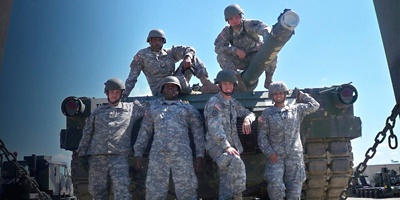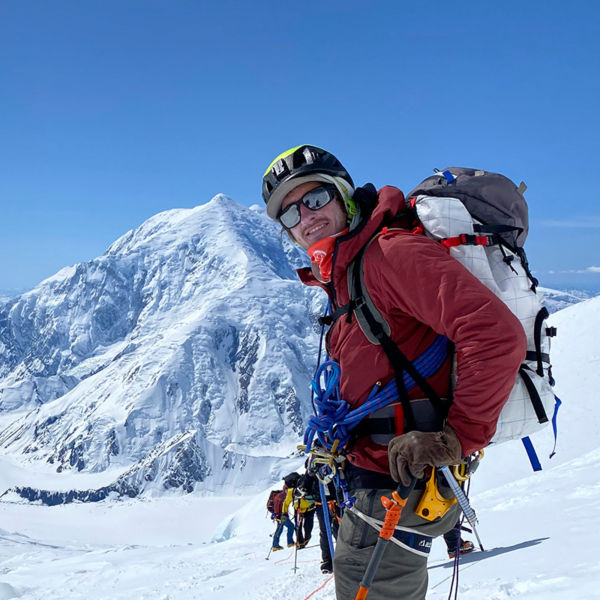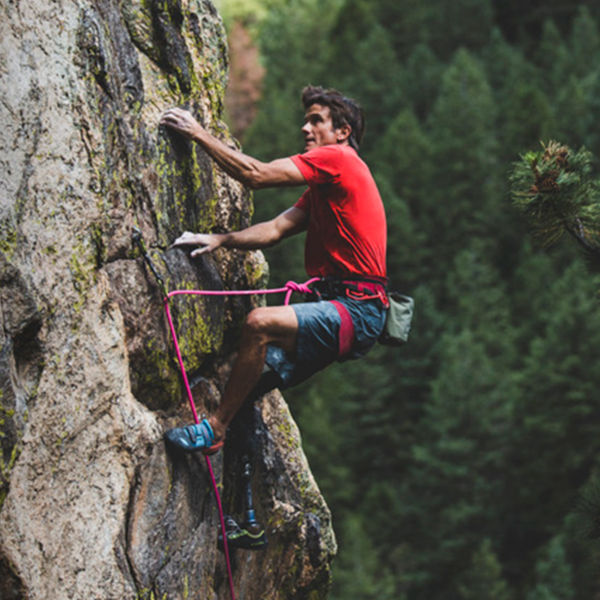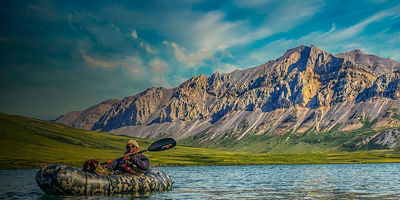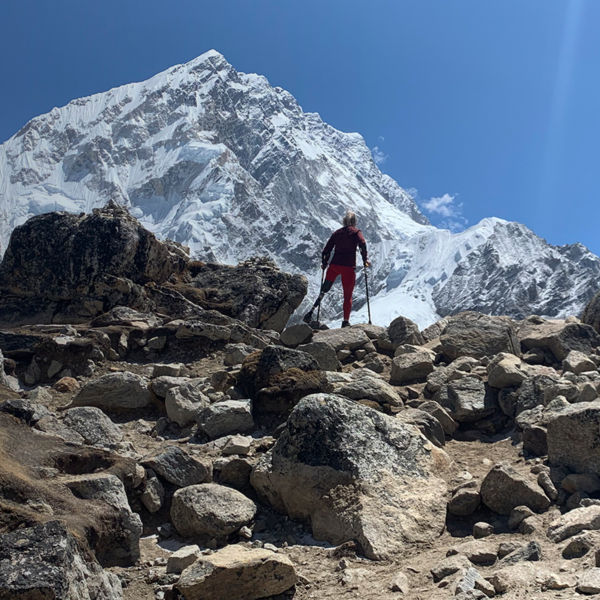
For decorated combat veteran Davon Goodwin (he/him), transitioning back to civilian life was all about finding a new purpose. After an injury ended his military career, he found himself listless and depressed, battling PTSD and other post-war issues. After much struggle, he felt he had finally found a new calling: fighting forest fires. What he didn’t realize was that joining a wildland fire crew would completely change his life—just as joining the military had.
Goodwin’s story starts back in 2007, when he first signed up for the U.S. Army. At the time, he was studying biology and botany at the University of North Carolina at Pembroke and was looking for something to give his life a little more structure and discipline. So, Goodwin joined the Army Reserve and, without thinking much of it, put his name on the deployment list.
Then, one day in class, his phone rang.
“It just kept ringing. When I finally picked up, they said ‘Drop all your classes because you’re on schedule to deploy to Kuwait and Iraq,’” Goodwin recalls. He packed his things, put his college career on pause, and within a few weeks he was on a plane to the deserts of the Middle East.
At first, serving abroad felt fine. In Iraq, military operations had been slowing. Goodwin’s job was more or less to help hold down the fort. It felt like business as usual. “Then we got a notification that half our unit was going to get pushed into Afghanistan to help with the surge in 2009 and 2010,” says Goodwin, then a Private First Class, who was in the half that shipped out. Almost immediately, he says, “It became clear that this was a whole different theater of war.” Deployed to southern Afghanistan’s Helmand Province, attacks and bombings were far more common, and tensions had begun to rise.
The Rift
On August 21, 2010, Goodwin was one of four soldiers riding in a heavy equipment transporter. Everything seemed normal, until suddenly, the whole vehicle shuddered and time seemed to slow: “The vehicle went over an IED, or an improvised explosive device,” he says, “and that changed the course of my life.”
Goodwin doesn’t remember much of the explosion; he suffered a traumatic brain injury that left him with memory lapses and narcolepsy, a chronic sleep disorder. He was discharged with honorable status and a Purple Heart for his service, but that’s not all he took home. PTSD and other post-war issues followed him around for the next two years.
That’s when Goodwin stumbled upon the Student Conservation Association (SCA), a nationwide environmental nonprofit that connects students, volunteers, and conservationists with fieldwork and training opportunities. In 2010, the SCA founded a wildland firefighting program with a simple mission: to train veterans in resource management and connect them with wildland fire crews in need of highly qualified personnel.
At the time, Goodwin wasn’t sure what he wanted to do career-wise, but he was anxious to get back to his roots as a biologist, so he signed up for the SCA program. Before long, he was on his way to the Black Hills of South Dakota for basic training, where he was surprised by how easy it was to fall into the new routine.
While the SCA’s Veterans Fire Corps is no longer running, many similar programs exist. The Bureau of Land Management has its own veteran fire crews, along with the Southwest Conservation Corps and the Southeast Conservation Corps. All of these provide veterans a pathway toward fulfilling civilian careers—which is exactly what Goodwin felt he needed.


